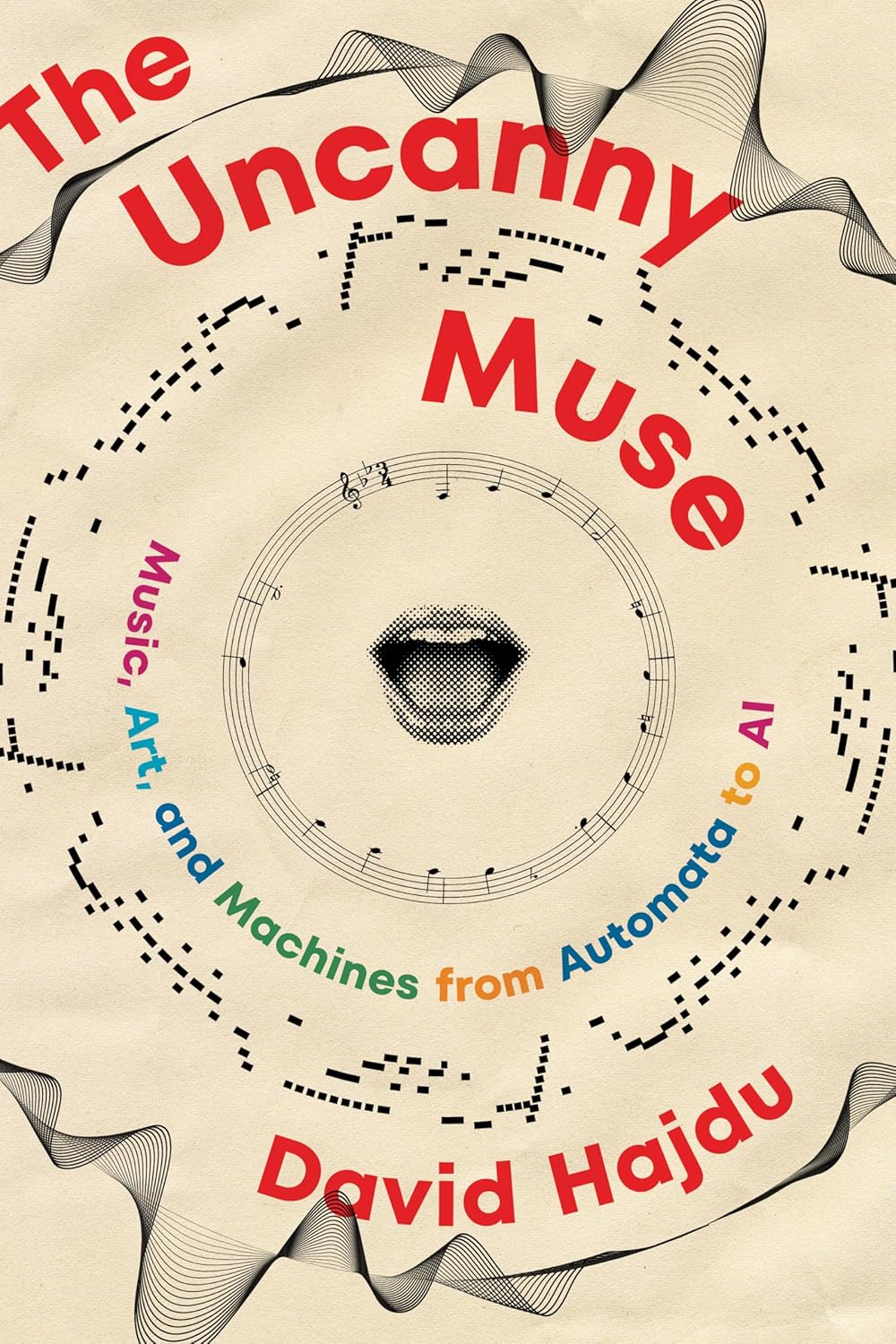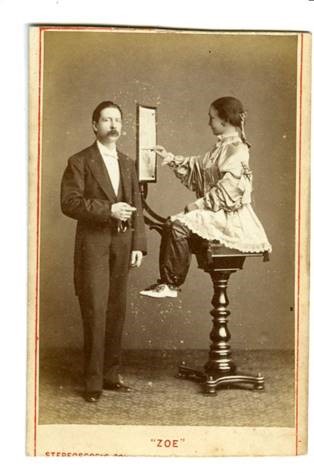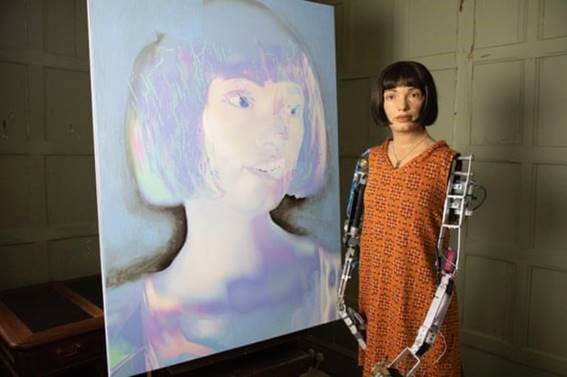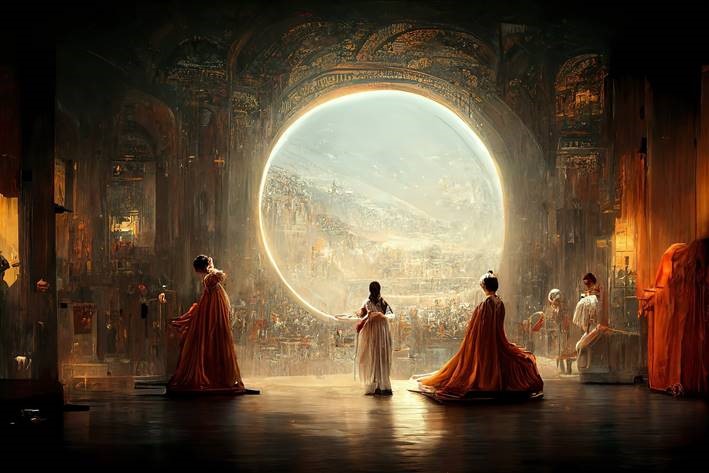
The Uncanny Muse: Music, Art, and Machines from Automata to AI
智能繆斯: 機器人與AI如何改變音樂和藝術
內容介紹
近幾年出版界對於AI/ChatGPT的態度還是很負面和保守,David很多客戶的合約一堆條款不允許AI生成內容、AI翻譯、AI設計封面等等,搞的出版同行人心惶惶。其實David也看到國外已有出版社實驗性質的使用AI來創作小說,中國和歐美也不乏使用AI設計封面的情況(當然也出現了一些相關的醜聞,像是AI畫出的封面把昆蟲畫成八隻腳等等)。其實David覺得AI/ChatGPT的出現的確可以大幅增進人們的工作效率,但是到目前為止人類還是得做把關的動作,才不會讓AI瘋狂生產人類無法吸收、欣賞或帶有錯誤資訊的藝術、音樂、創意、文字等等。
比方說今日做版權寫書訊比以前容易的多,很多書的內容透過ChatGPT可以很快知道重點或是直接從amazon的英文介紹翻譯成中文,但是對於David而言,agent的工作是要消化這些文字去找出這本書與讀者之間的關係,並不是只是簡單把amazon的書目介紹丟給ChatGPT,然後複製貼上到email發給出版社就結束了,很多時候找到一本書的賣點比介紹書的內容來的更重要。
今天想介紹的書《智能繆斯: 機器人與AI如何改變音樂和藝術》(The Uncanny Muse: Music, Art, and Machines from Automata to AI) David覺得很有趣,會讓人想到很多AI生成與創作、著作權等相關議題。
人類總是不停的在動腦如何透過機械來創造藝術,在西元前兩百多年中國就發明了12銅偶樂團吹奏琴築笙竽、十九世紀John Nevil設計了一個會畫畫的機器人Zoe,二十一世紀則是出現了第一幅名叫艾達(Ai-Da)的機器人的自畫像。
2022年美國著作權局拒絕得獎數位畫作《歌劇院空間》(Théâtre D'opéra Spatial)的作者Jason Michael Allen所提出的著作權申請,Jason Michael Allen則認為他透過 624個不同的文字敘述(text prompts)才透過AI 繪圖生成工具Midjourney創作出他想要的畫作,另外他還得透過Adobe Photoshop和Gigapixel AI tool來加工處理完善這幅數位畫作,他無法接受自己的作品沒有收到著作權的保護。



我想很多編輯和版權應該都有使用過DALL·E透過文字敘述創建簡報需要使用的圖片或是創作靈感,還可以針對細節不斷的去調整。我想透過ChatGPT去寫程式、創作音樂應該也是同樣的經驗, AI與藝術、AI與音樂、AI與創作之間理不斷剪還亂的關係,未來肯定會越演越烈,透過《智能繆斯: 機器人與AI如何改變音樂和藝術》(The Uncanny Muse: Music, Art, and Machines from Automata to AI)這本書我們可以深入思考人類的繆斯是否可以是AI的可能性,以及人類害怕AI,是否擔心人可AI取代? 是否人類害怕我們自認為優越於其它物種的人性其實只是安慰自己的謊言?
歡迎和David/Karen索取書稿。
備受讚譽的評論家、記者兼詞曲創作音樂家大衛·哈杜 (David Hajdu)講述從巴洛克時期到人工智慧時代藝術與機器之間的關係。
在一個機器也能成為藝術家的世界裡,人類的意義是什麼?什麼是「恐怖谷現象」? 隨著人工智慧AI創作的藝術迅速發展,有關科技在當代文化中的角色的問題變得越來越迫切。
在《智能繆斯: 機器人與AI如何改變音樂和藝術》中,大衛·哈杜 (David Hajdu)探討了藝術中自動化的歷史,追溯了發明家和藝術家們在幾個世紀中模仿心理過程或融合機械世界和人類靈魂的各種方式。從在維多利亞時代倫敦因繪畫而引起轟動的真人大小的機械娃娃,到現代的人工智慧,大衛·哈杜 (David Hajdu)採取了一種新穎且反傳統的方式:他認為各個時代的機器促進了創造力,而不是抑制創造力,並且認為今天的人工智慧也應該如此。
序言
1. 它是活的嗎?
2. 思考機器
3. 凡人的才智無法要求更多
4. 甚至連廚房水槽
5. 城市的靈魂
6. 這是音樂嗎?
7. 腦自動化
8. 每個人都應該成為機器
9. 模式
10. 更多的開始
11. 就像一個機器人
12. 天堂
13. 一個非常好奇的關係
14. 教與學
15. 對抗性網絡
作者介紹

大衛·哈杜 (David Hajdu)是七本書的作者,包括HEROES AND VILLAINS: Essays On Music, Movies, Comics, And Culture (博達代理)、The Ten-Cent Plague: The Great Comic-Book Scare and How It Changed America (博達代理)、Love for Sale: Pop Music in America (博達代理),並三度入圍全國書評人協會獎。他是《國家》雜誌的音樂評論家,也是哥倫比亞大學的新聞學教授。他居住在紐約市。
書評
"Fabulous and stimulating. We humans have always had a deep fascination with mechanical objects and an equally deep urge to create art. David Hajdu skillfully brings these two strands together in a work of elegant synthesis, revealing a deep understanding of what makes us and our machines tick and our art sing."
― Daniel J. Levitin, New York Times best-selling author of This Is Your Brain on Music and I Heard There Was a Secret Chord
"David Hajdu is the rare sort of critic whose deep intelligence and even deeper humanity can challenge or rearrange even the most deeply held positions about culture. I thought I knew how I felt about AI, artifice, authenticity, the so-called machine condition and its relationship to art. The Uncanny Muse made me rethink all of it. A miraculous book, written with extraordinary grace."
― Amanda Petrusich, author of Do Not Sell at Any Price and pop music critic, The New Yorker
"Into a moment when AI’s troubling role in the present and future of artistic creation rules the discourse, David Hajdu’s The Uncanny Muse brings an exciting and essential sense of history, perspective, and boundless curiosity. This constantly surprising exploration of 150 years of boundary-pushing and limit-testing innovations in the realm of who, or what, can make art reframes the discussion in a vital and fascinating way."
― Mark Harris, New York Times best-selling author of Mike Nichols: A Life
"Are song-making algorithms only the latest in a long series of musical amanuenses? Or is generative AI a new kind of musical synthesizer―a synthesizer of the human creator? The Uncanny Muse offers a timely, richly informative, and beautifully written inquiry into the origins of ‘computational creativity,’ framed in the historical context of human creativity and our many mechanical muses."
― John Seabrook, author of The Song Machine: Inside the Hit Factory
"Fascinating. The result of David Hajdu’s extensive research, interviews, and expert journalism is a cornucopia of ideas involving art, music, machines, computers, and AI, excitingly interspersed with personal interviews of many of the key innovators still living. Curiosity and creativity combine in this fine accomplishment."
― A. Michael Noll, pioneer in the use of digital computers in the visual arts and professor emeritus, Annenberg School for Communication and Journalism, USC
"David Hajdu, one of our most important arts and cultural critics, confronts one of the most divisive aesthetic issues facing us today. In The Uncanny Muse, Hajdu interviews jazz and rock musicians, visits museums and laboratories, goes to nightclubs, galleries, and a Christie’s auction to hear and evaluate the work of artists who either resist or embrace mechanical arts, finding them authentic or fraudulent, innovative or derivative, liberating or dehumanizing. What, in the end, Hajdu forces us to ask ourselves, does it mean to sound human?"
― Robert P. Crease, chair, Department of Philosophy, Stony Brook University, and author of The Workshop and the World: What Ten Thinkers Can Teach Us About Science and Authority
"David Hajdu has tapped into something vital. This very engaging book places art and music at the center of our long history of collaboration with machines, reaffirming the importance of situating the human spirit at the center of today’s artificial intelligence efforts."
― George E. Lewis, innovator in AI composition and Edwin H. Case Professor of Music, Columbia University
"As AI flirts with aesthetics, the questions may change, but the riddles just get gnarly: can ‘smart’ machines sound sexy? Do robots make art for other robots? What blind spots form when composers play duets with algorithms? Tracing how mechanics has long tinkered with our imaginations, from clocks and cameras to Steinways, player pianos, microphones, Moogs, and beyond, Hajdu’s tantalizingly brief book coasts on that Elvis quote, ‘Ambition is a dream with a V8 engine.’ A thought bomb on every page."
― Tim Riley, author of Lennon: The Man, the Myth, the Music―The Definitive Life and pop and classical music critic, NPR
"I like to say that music lives at the intersection of the algorithmic and the spiritual. In The Uncanny Muse, David Hajdu explores the meeting point of these seemingly opposing forces, in music as well as in visual art, with uncommon lucidity and depth. In language both precise and effortlessly flowing, he leads us on a fast-paced journey through the events which, over the last 150 years, have led us to our AI-dominated present, from early experiments in robotics to mechanized House music via the first attempts at generative art. Through it all, he shows an unerring curiosity for and command of his subject."
― Dan Tepfer, pianist / composer / coder
相關連結
